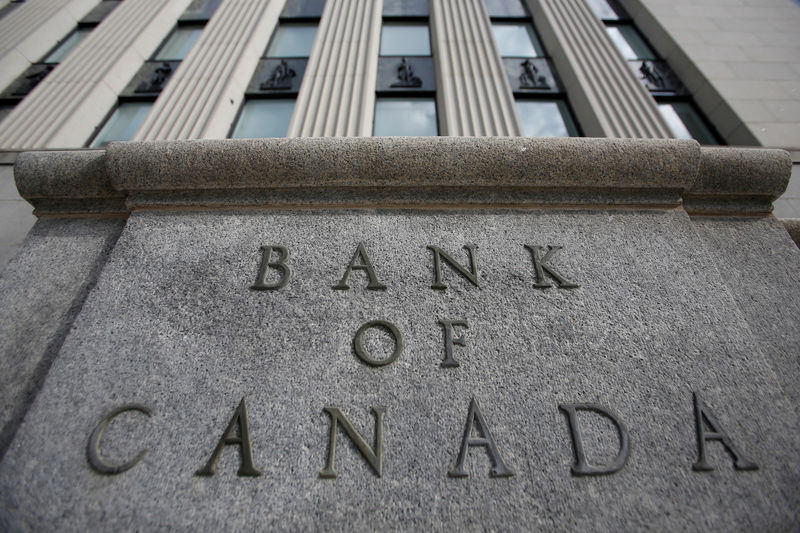By Kelsey Johnson
OTTAWA (Reuters) - The Bank of Canada held its overnight rate at 1.75% as expected on Wednesday and cited signs the global economy was stabilizing, helping send the Canadian dollar to a two-week high as prospects for a rate cut faded.
Although the central bank stressed that uncertainty caused by trade wars remained the main threat to its outlook, markets paid more attention to the upbeat parts of its commentary.
The bank - which has held rates steady since October 2018 - said future moves would depend on its assessment of the damage done by trade conflicts versus sources of resiliency in the economy, notably consumer spending and housing activity.
"There is nascent evidence that the global economy is stabilizing, with growth still expected to edge higher over the next couple of years," it said.
The Canadian dollar strengthened to a two-week high of C$1.3231 to the greenback, or 75.58 U.S. cents.
"If you read how they describe the domestic economy, it is very broadly positive," said Andrew Kelvin, chief Canada strategist at TD Securities.
The bank said investment spending showed unexpectedly strong growth in the third quarter, adding it would assess the extent to which this points to renewed momentum in investment.
Third-quarter consumer spending expanded moderately while housing investment was also strong, the bank said, adding it "continues to monitor the evolution of financial vulnerabilities related to the household sector."
Inflation remains at the bank's 2% target and is expected to track close to that figure for the next two years.
Sal Guatieri, senior economist with BMO Capital Markets, said the bank appeared to be taking comfort from the rebound in business investment and steady growth in consumer spending.
"Barring some disruption on the trade policy front, it looks like the Bank of Canada is content to remain on the sidelines for a lot longer," he said in a phone interview.
Several of the bank's counterparts, including the U.S. Federal Reserve, have recently eased rates.
Money markets see the central bank holding rates steady through to the end of 2020. [BOCWATCH]
But Derek Holt, vice president and head of capital markets economics at Scotiabank, said the statement marked a prematurely hawkish turn.

"The bank must know something that everyone else in the markets doesn't in terms of risks to global trade policy that remain deeply unsettled, (the) risk to financial markets (and) U.S. dollar funding pressures," he said by phone.